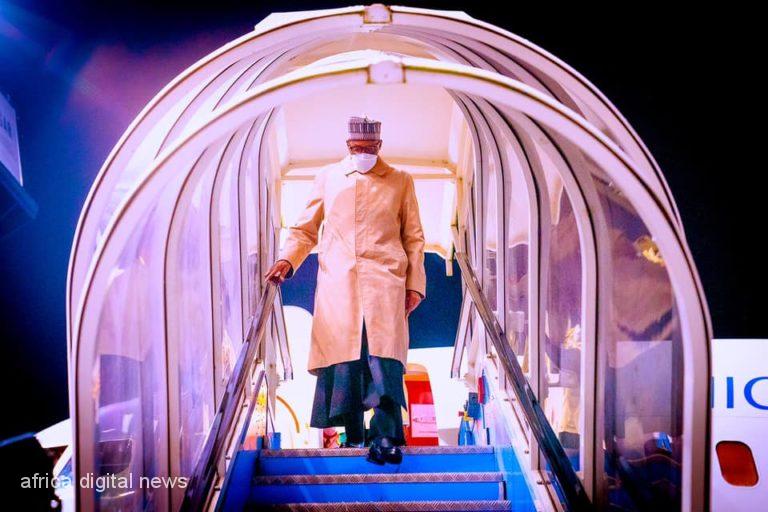African countries share quite a lot of similarities both good and ugly. Across the continent, there exists, a shared pattern of social, economic, and cultural practices which exemplifies a lot of positive similarities. On the flip side, there is also a shared pattern of stunted development often fueled by very poor political behaviour across the continent. On average, however, governance failure, endemic corruption, weak institutions, and very horrible governance seem to be common denominators in Africa and this has only culminated to hold the continent down while others are making headway.
The healthcare system in Africa is a sad example of how badly governed most African countries have been. Most leaders in Africa have failed and continued to fail themselves and the nations or countries they govern in no small measure. It is sad that over sixty-odd years after independence most African countries gained their independence, virtually all the leaders in the continent still travel to Europe or Asia for health checks or treatment. To think of the fact that they do this very shamelessly is simply depressing.
Medical tourism has grown to become a cankerworm in the fabric of many African nations particularly Nigeria. Every year, billions of dollars are spent on travelling to Europe, Asia, and North America to seek proper healthcare. In 2021 alone, Africans spent almost $10bn on medical tourism. To think that is a continent struggling with a balance of payments and trying to keep its foreign reserves healthy will leave any sane mind livid with anger. For members of the elite class and the politicians who control public wealth, these ugly habit has become a way of life, and hence, they are not prepared to do anything to correct it.
Read Also: Why The ANC Must Give Up On Ramaphosa To Save South Africa
It can be argued that private citizens who prefer to seek medical abroad do not owe the public any form of explanation, it is their hard-earned money and no one should dictate for them how to spend it. However, medical tourism among the political elites and public office holders can not be judged by the same standards because they are responsible for the development of proper health care for the citizens of their countries.
It is a well-documented fact that politicians from many countries across the continent go abroad for medical treatment. They do this mainly for two reasons, one is that the expense incurred while on these trips is paid for by taxpayers whose common patrimony they control, and the other reason is that they simply lack confidence in the same health systems they oversee. As expected, the result is that they have little or no motivation to change the status quo in the interest of the citizenry. It is without a doubt that medical tourism by African leaders and politicians is easily one of the salient causes of Africa’s poor health systems and infrastructure in the continent.
In the scheme of things, Nigeria appears the worst hit. Studies have shown that Nigeria is the leading producer of medical tourists in Africa, and this is not because Nigeria is home to the largest population of human beings in Africa but also because Nigeria has one of the poorest healthcare facilities on the continent.
On top of the list of people who have become medical tourists from Nigeria are Presidents, Legislators, Governors, and ofcourse their family members who are always quick to jet out anytime they notice even the slightest hints of a headache. Among the most notorious medical tourists in Nigeria who were occupying public office during the time of their trips are the late President Umaru Yar’Adua and the incumbent President, Muhammadu Buhari who had long stays outside the continent while seeking good health.

It is important to note that Nigerian leaders are, however, not alone in the non-disclosure of their illness nor are they the only African leaders who engage in medical tourism. Quite a number of other African leaders are also lovers of medical tourism and it is only helping to sink the continent further.
These wicked, frequent medical trips by African leaders do not come cheap, they come at a huge cost to their countries, which are always pushed down to taxpayers who are always on the receiving end of whatever brutal position the political elite decides to take.
Besides the capital flight that goes with medical tourism, the practice is an indictment of the health care system in African countries, most of which rank poorly on the Human Development Index. The involvement of African leaders in medical tourism accentuates this indictment by further undermining the health care system.
The deplorable situation in government medical facilities has encouraged brain drain, leading African doctors to go abroad in search of greener pastures. Today, there are Nigerian doctors in virtually every notable hospital across the United States and Europe. Indeed, many Nigerian patients go abroad for treatment, only to be attended to by a Nigerian doctor or nurse. What a shame!
Not only do the leaders travel with elaborate entourages, but they also travel in expensive chartered or presidential jets. For example, the cost of parking Buhari’s plane during his three-month spell in London two years ago was estimated at £360,000. That’s equivalent to about 0.07% of Nigeria’s N304 billion budget allocation for health this year. And there would have been many other heavier costs incurred during his stay.
The effective health systems in western and Asian countries that are being patronised by African leaders only exist because they were developed, and are consistently maintained, through political commitment and visionary leadership, qualities that are clearly lacking in Africa.
To effect any sort of change to this anomaly, it is high time, African citizens started condemning political medical tourism. They must add their voices, especially on social media to fix the rot. Politicians whose foreign medical trips are funded by taxpayer funds should be banned and criteria set detailing what sicknesses that can be covered by the public purse. Though a law to this effect exists in Nigeria, it appears to be ineffective. It must, and should work. Nigerians must make sure it works.
In conclusion, African leaders should save their nations and their peoples from the embarrassment of seeking medical help abroad ever too often in spite of the rich human resources which the continent has. It is high time they began practicing the patriotism they always admonish their citizens about.










